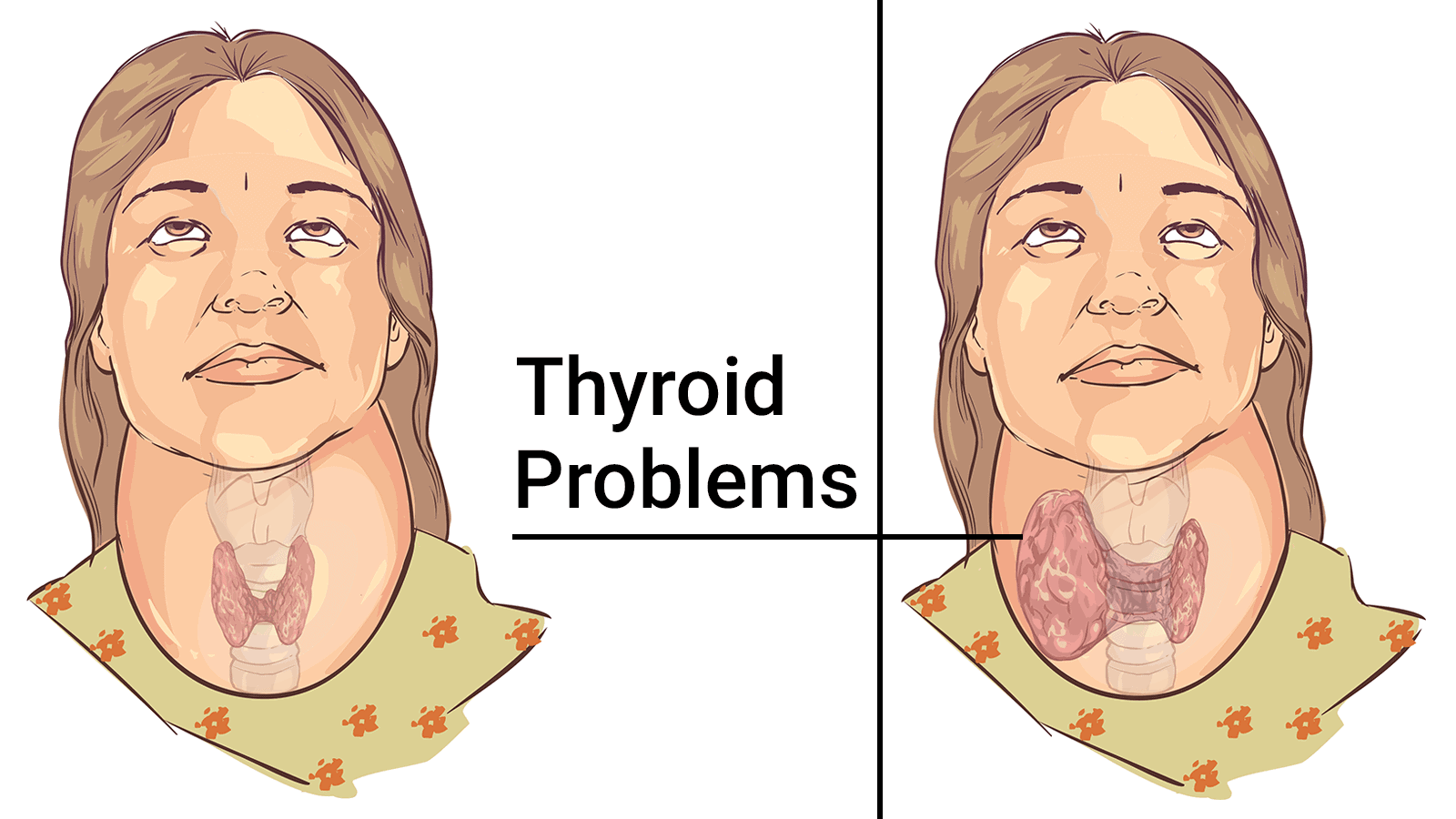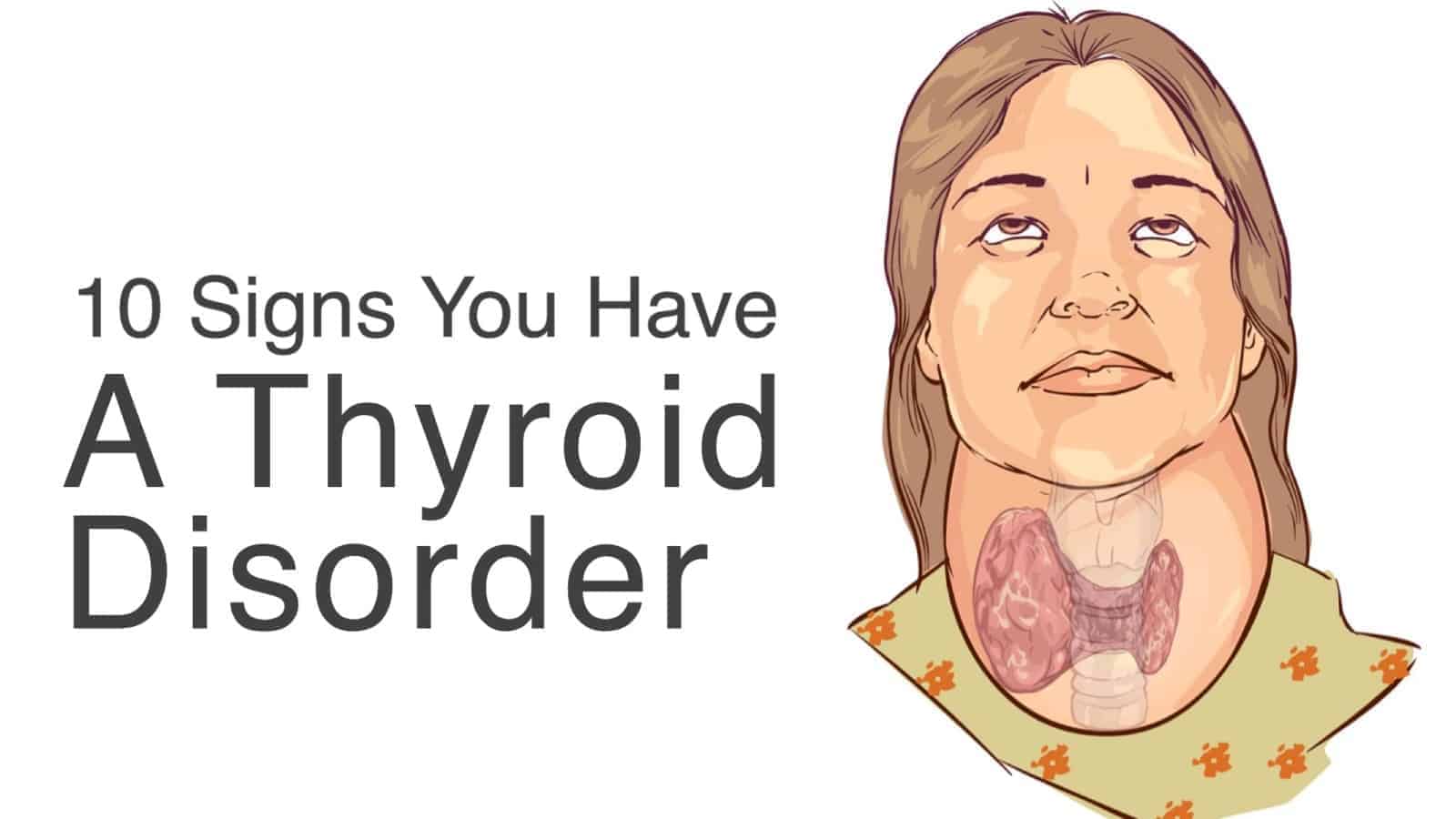Thyroid problems can wreak havoc on one’s overall wellness. If you seek information to try to reverse the harm, rest assured you are not alone.
“An estimated 20 million Americans have some form of thyroid disease. Up to 60 percent (are) unaware of their condition. Women are five to eight times more likely than men to have thyroid problems. One woman in eight will develop a thyroid disorder during her lifetime.” ~ American Thyroid Association
For such a small gland, the thyroid gland immensely impacts our health. So consider just some of the things that the thyroid hormone affects:
- cholesterol levels
- heart rate
- body weight
- energy levels and mood
- muscle contraction and relaxation
- skin and hair texture
- bowel function
- fertility
- menstrual regularity
- memory
Thyroid Conditions
Given its broad scope of responsibilities, it’s hardly a surprise that many things can go awry when the thyroid isn’t properly functioning. A thyroid problem is directly related to hormone production – conditions known as hypothyroidism and hyperthyroidism.
Hypothyroidism is the name given to an underactive thyroid. Low thyroid hormone levels define this disorder of the endocrine system. Hypothyroidism can cause numerous symptoms, including constipation, fatigue, depression, and weight gain.
The overproduction of thyroid hormones characterizes hyperthyroidism. An overactive thyroid can significantly accelerate the body’s metabolic functions. Symptoms of hyperthyroidism include irregular heartbeat, nervousness and irritability, heart palpitations, and sudden weight loss.
The causes of thyroid disorders include the following:
- autoimmune deficiency
- consuming too many soy-based foods
- high estrogen levels or low progesterone levels\
- nutritional deficiencies, including iodine, selenium, tyrosine, and zinc
- toxic levels of mercury
Natural Thyroid Treatments
The problems with thyroid-related treatments mimic those of other medical disorders in that they’re costly, have numerous side effects, and are often ineffective. Then, of course, there’s the more significant issue of being on medication for the rest of your life and the long-term implications of such.
As mentioned, nutritional deficiencies are often a cause of thyroid troubles. On that note, it is crucial to ensure adequate intake of the above nutrients: iodine, selenium, tyrosine, and zinc.
Of the four nutrients, iodine deficiency is far and away the most common deficiency associated with thyroid troubles. Iodine enters the body through iodine-rich foods, including iodized salt, eggs, fish, sea vegetables, raw and unpasteurized dairy products, and certain whole-grain foods. If you ruminate over possibly not having enough vitamins and minerals in your diet, a good supplement will do fine (preferably all-natural or organic.)
Here are some other natural treatments that may ease some of your thyroid troubles:
1. Ashwagandha
As with most natural treatments, this Ayurvedic herb isn’t studied or talked about much in traditional medicine. However, some herbalists and other naturopaths (and some medical doctors) state that ashwagandha appears to directly affect the thyroid hormones ‘T3′ and ‘T4′.
“Ashwagandha is my favorite choice for supporting the thyroid when stress is also a concern,” says Natasha Turner, naturopath and author of The Supercharged Hormone Diet. She recommends taking between 750 to 1000 milligrams (mg) daily.
2. Coconut Oil
Coconut oil contains lauric acid, caprylic acid, and capric acid – all medium-chain fatty acids that increase energy and promote a healthy metabolism. Several studies have shown that merely adding a tablespoon of coconut oil to your diet can accelerate fat loss.
The oil of coconut is quite versatile. In fact, it can be used as cooking oil or as an additive. Many people who swear by coconut oil also add a tablespoon to their favorite smoothie.
3. Probiotics
Probiotics may help thyroid troubles by healing the gut. Products such as kefir, kimchi, kombucha, organic yogurt, sauerkraut, and others also contain their fair share of quality ‘Probs.’
Mechanically, probiotics promote a healthy balance of microflora bacteria in the gastrointestinal (GI) tract. A well-balanced microbiome helps to absorb nutrients, heal leaky gut syndrome, heal inflammation, and suppress adverse autoimmune reactions.
4. Seaweed
Quality seaweed is a beautiful source of iodine, the most common nutrient deficiency for people with thyroid problems. Quality and freshness are paramount when choosing a seaweed product.
Kelp, kombu, nori, and wakame are all seaweeds that are relatively easy to find. Dry varieties of seaweed can be found in local health food stores. Common recipes include seaweed added to fish cakes, tuna fish, and soups.

5. Try a Shoulder Stand
Okay, we won’t try explaining this one for health reasons. Here’s Andrew Weil, M.D., explaining why it may help:
“…a shoulder stand (can) help by increasing circulation to the thyroid (this isn’t a good idea if you’re pregnant, menstruating, or have glaucoma and should be done with caution if you have high blood pressure or sinus problems).”
Before you engage in this athletic move, we advise seeking medical advice from your doctor, especially if you have additional health concerns. Another piece of advice: make sure to stretch, and if you feel pain at any time, immediately discontinue the pose.


















